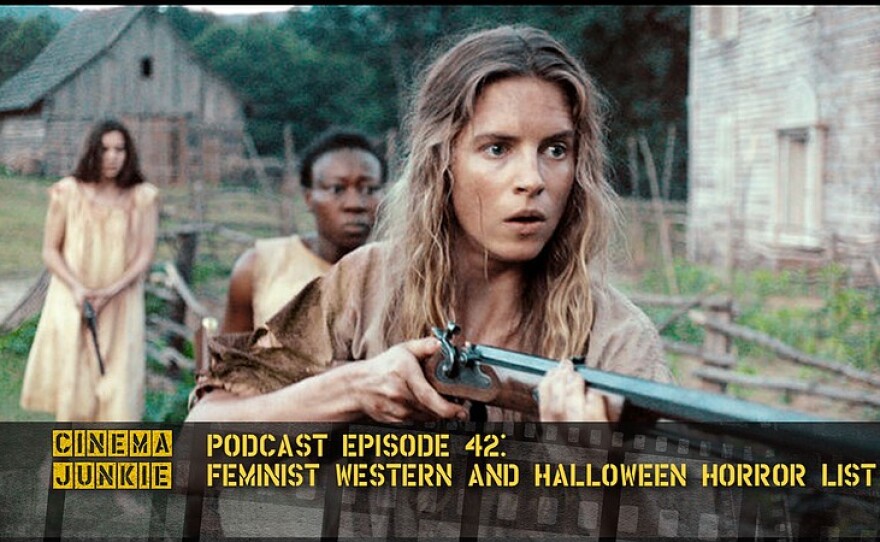Companion viewing
"Johnny Guitar" (1954)
"True Grit" (1969)
"The Beguiled" (1971)
Feminist western barely qualifies as a sub-genre since there are so few entries but "The Keeping Room" (opening Friday at Landmark's Ken Cinema) offers a strong entry.
“The Keeping Room” is a subtle genre mash up that takes the fundamentals of a home invasion thriller, adds the trappings of a western, and then spins a Civil War tale focusing on a trio of women in Georgia just before Sherman’s brutal march.
Brit Marling is Augusta, a young woman struggling to survive with her sister (Hailee Steinfeld) and Mad (Muna Otaru), a black woman who may or may not be their slave (there's a reference to her perhaps being a freed slave). The three live pretty much in isolation on a family farm until some Union soldiers scouting ahead for the army spot the beautiful Augusta and track her back to the house. This is where the home invasion scenario kicks in and the women have to hold off the Union soldiers.
War is never pretty and the film opens with a quote from Gen. Sherman about war being cruel and the crueler it is, the quicker it ends. Mad, the black woman, reveals the cruelty she experienced outside of war and explains that everyone has their monsters to deal with. There’s a sense of compassion within this tight knit female community, but not much compassion or forgiveness outside of it, especially not for the Union or for men.
One soldier raises the Sherman notion of cruelty, but I'm not sure what we are to make of it.
"The Keeping Room" serves up a feminist tale about the brutality of war and sexual violence. It’s eager to say something but I’m not sure exactly what that message is as it looks to the cruelty of war. Is the film meant as a challenge to Sherman’s quote about cruelty, to say he’s wrong? Maybe, but the women seem eager to return violence with violence (a justifiable response considering the soldiers they are dealing with), even after that approach leads to some unexpected and tragic consequences.
There’s no sense of trying to understand the dynamics of the situation, which is a microcosm of a larger conflict and which fails to address the underlying reasons for fighting the war.
Sure, what these Union soldiers are doing is horrific, but so too was a lot of what the white South was doing in regards to slavery.
Mad's story about the cruelty she experienced, seemingly at the hands of slave owners, seems disconnected from the rest of the story, yet there should be a connection. But that part of the dynamic is overlooked because our tiny circle of characters has an interracial trio of women where they all seem on fairly equal footing – Mad even gets to slap Augusta with no consequences.
But Mad's also a bit too quick to forgive Augusta for a later horrific if unintentional act. I’m not sure if the film’s point is that war makes us all cruel or that cruelty is just a by product of war that we have to learn to deal with. Or maybe that even these seemingly good women can become cruel under the right circumstances.
Or perhaps it’s just trying to give a shout out to strong, everyday women who are often overlooked in cinema. On that count it succeeds and once again Brit Marling gives a stellar performance as a female catalyst who moves the story forward. She’s flawed but determined to survive. Her Augusta is a far better example of a feminist character in a western than Hilary Swank in "The Homesman" last year.
Listen to the podcast for a full review with clips from the film and for a recap of my 30 Days of Streaming Horror.


